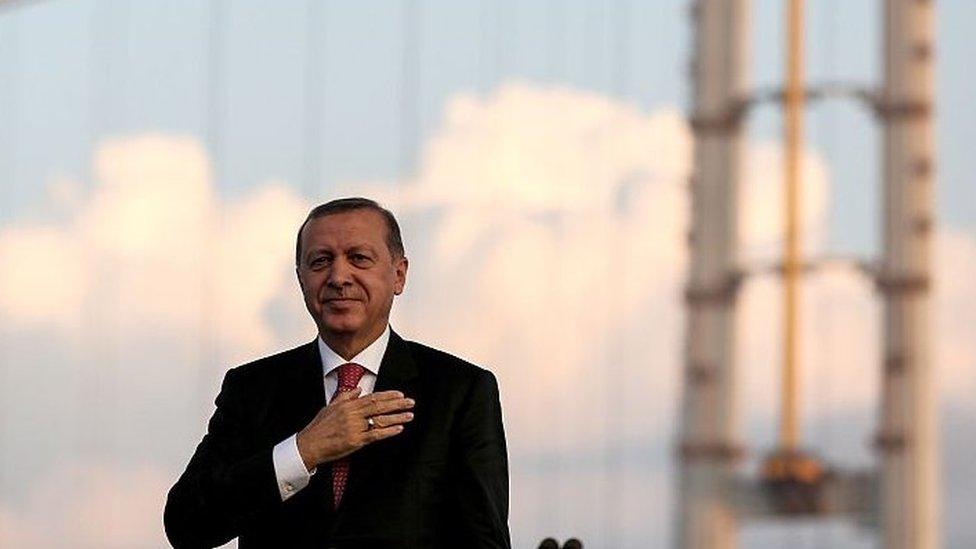Turkey's failed coup: 'What is happening to our country?'
- Published
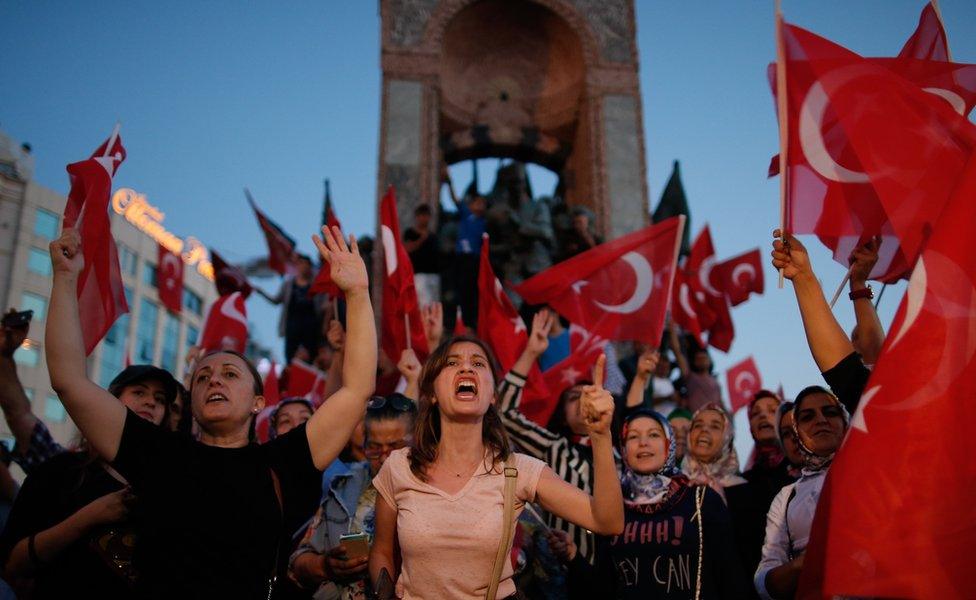
Taksim Square, Saturday: Jubilant government supporters mark the end of the coup attempt
It's a bright summer day in central Istanbul, although things are far from normal.
In Taksim Square, where the heart of this city beats, there is a group of people wrapped up in Turkish flags, shouting "God is great!" in protest at the coup attempt and in support of the government.
This place would normally be packed with tourists, street musicians and people out shopping or having a drink in one of many bars. Now it feels edgy, angry and sad.
"What is happening to our country?" asks an old man. "Brothers are up in arms against each other," meaning the clashes between the coup-plotting soldiers and the security forces loyal to President Erdogan's government.
"I fear there will be more bloodshed. Do you think we will be like Syria?" he asks.
It has been an overwhelming night and day for millions of Turks, glued to their television screens and Twitter feeds, trying to figure out what was happening.
First, the pictures from Istanbul emerged, showing the major bridge over the Bosphorus seized by soldiers. People started to ask: Could this be a coup attempt?
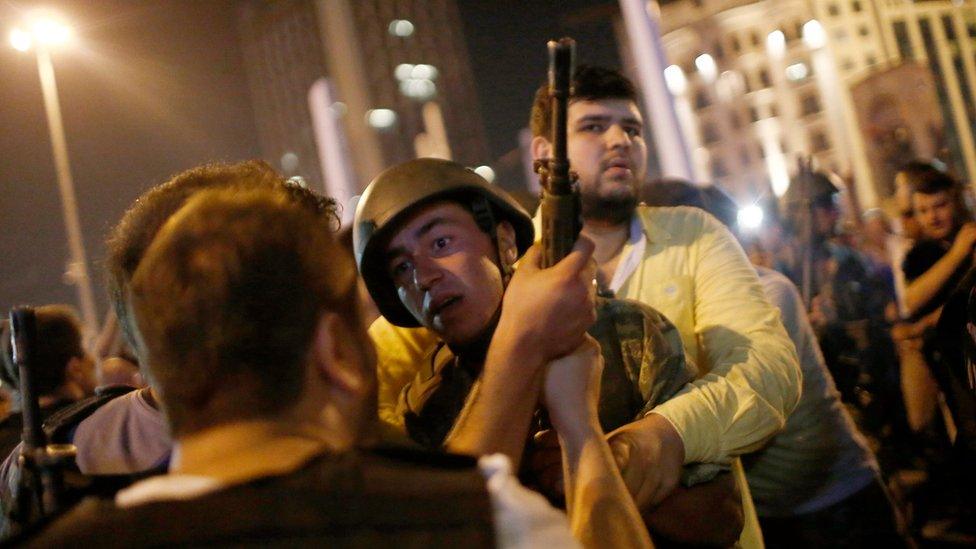
Taksim Square, Friday: Fighter jets overhead, violent clashes and soldiers being detained
As panic struck, the unease started spreading from adults to children. I was then still in Izmir, the third biggest city in Turkey, trying desperately to make my way to Istanbul.
The 11-year-old son of a friend travelling with me was in shock, crying, not knowing exactly what was happening and asking his father whether Turkey was at war now. His father tried to console him: "Everything will be OK."
Soon after the prime minister confirmed that this was indeed a coup attempt, carried out by a faction within the army, I saw people queuing in front of bakeries to buy bread, at petrol stations to buy fuel, at ATMs to withdraw as much money as they could.
It felt surreal - even for a country that has witnessed three coups and two further military interventions in the past.
Live pictures from Istanbul showed a local news channel's premises being raided when it was still on air. Soldiers were not seen on camera, but scuffles were heard. And gunfire.
People were constantly tweeting about the explosions: Was that a sound bomb or a major attack nearby, they were asking.
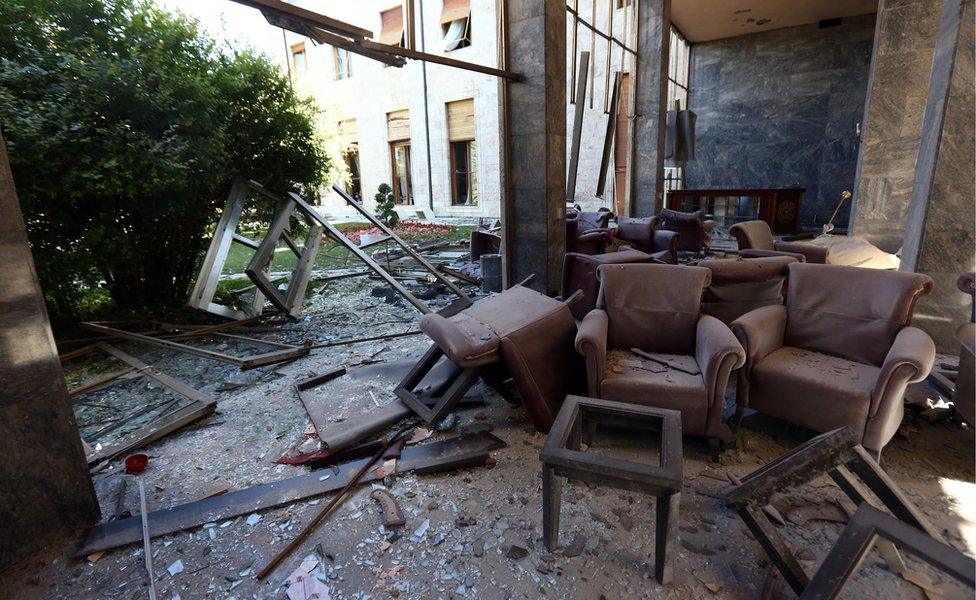
Parliament being hit was "a significant moment"
In the capital city Ankara, scenes were even more dramatic. Gunfire on the streets, tanks on the march, jets flying low over government buildings, helicopters hovering over the parliament.
At one point during the night, millions of Turkish citizens watched their parliament come under fire by helicopter attack live on television. The MPs shared their latest whereabouts on Twitter - taking refuge, packed in the shelters.
Never in Turkey's modern history had parliament been hit - even at the most turbulent times. It was a significant moment, symbolising the wound opened in the heart of Turkish democracy.
Almost everything was live on air. President Erdogan's in-vision call to a news channel was one of the iconic moments, when he called on everyone to take to the streets. Many imams repeated his call from mosques via megaphones. "We call on all to go out to public squares," they said.
And crowds answered the call. Soon there emerged pictures of men on top of tanks, beaten-up soldiers, jubilant anti-coup protestors. Dozens of rebels abandoned their positions.
The government says the coup attempt is over, blaming the movement supporting US-based cleric Fethullah Gulen. They deny any sort of involvement.
But after at least 265 dead, 1,440 wounded, nearly 3,000 soldiers arrested, and more than 2,700 judges dismissed, many Turks wonder: how will Turkey cope with the trauma it just went through?
- Published15 July 2016
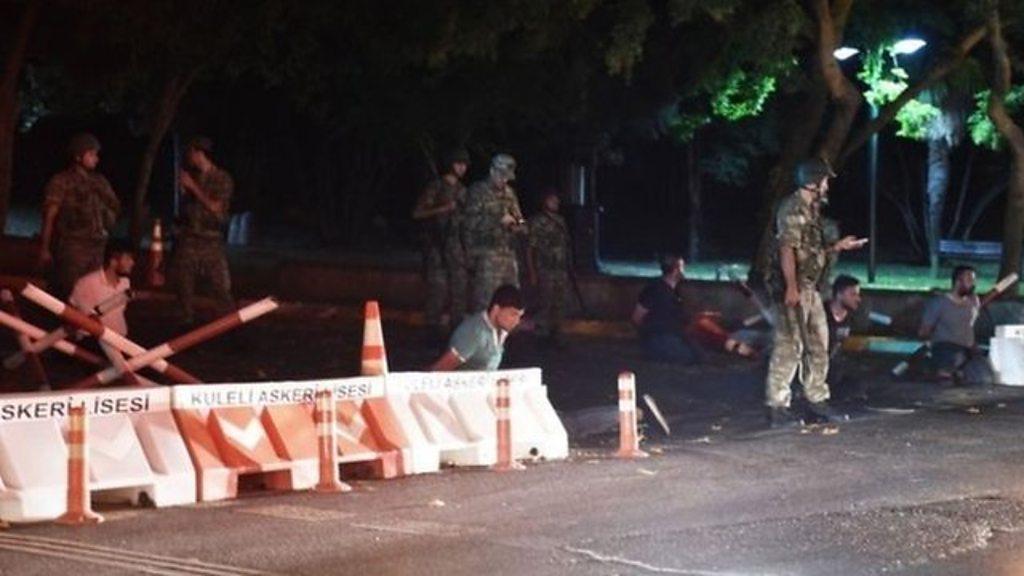
- Published16 July 2016
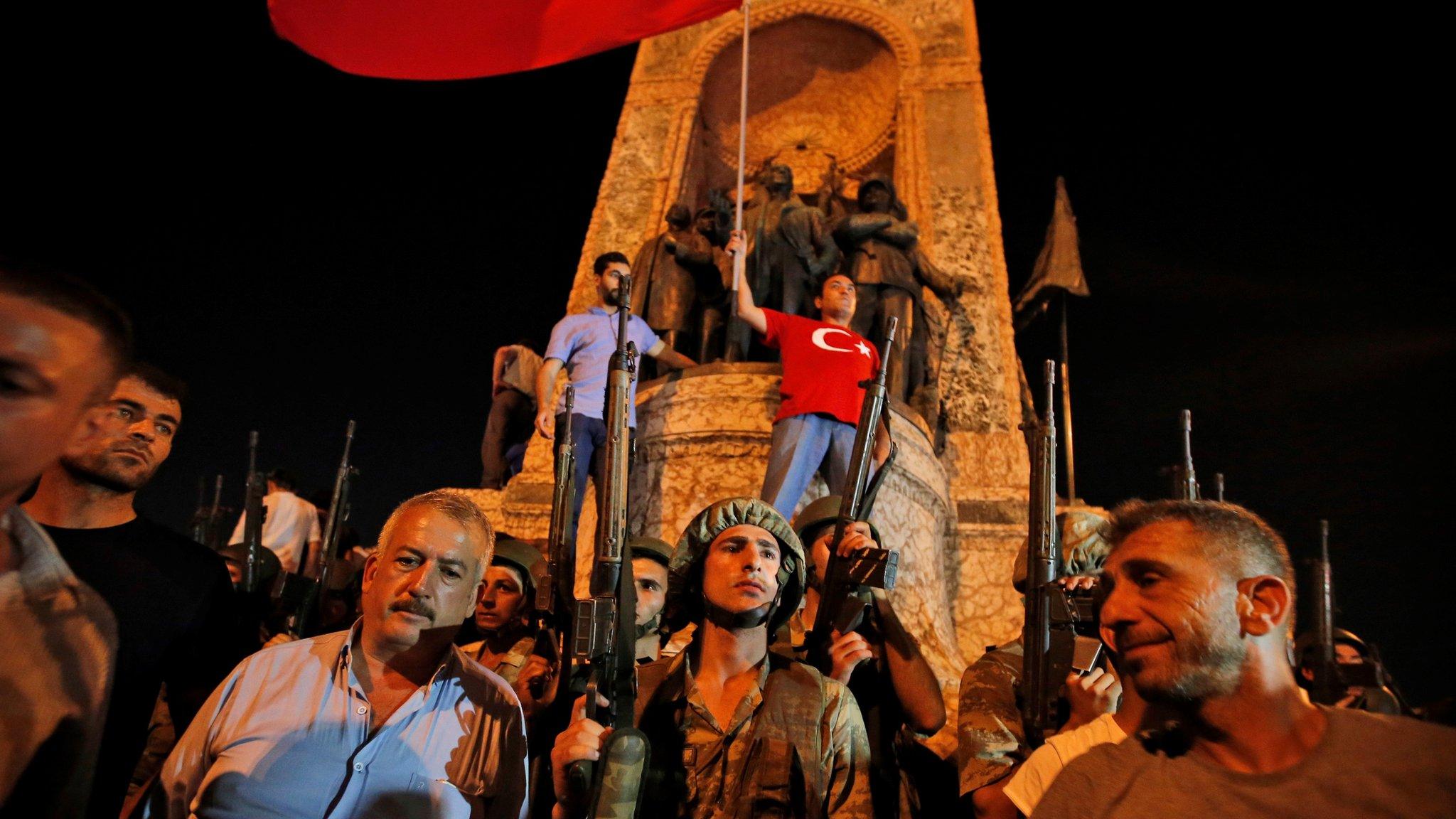
- Published16 July 2016
- Published17 July 2016
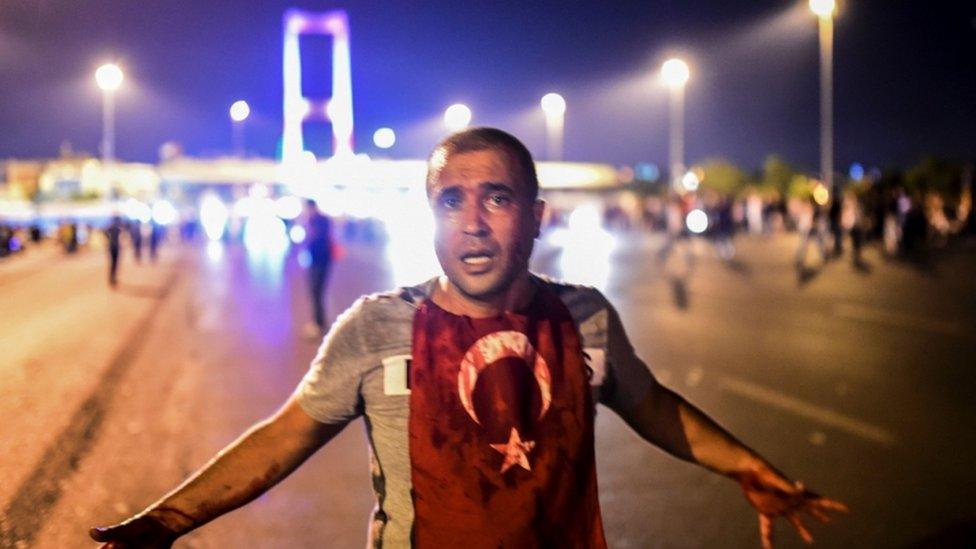
- Published24 March
